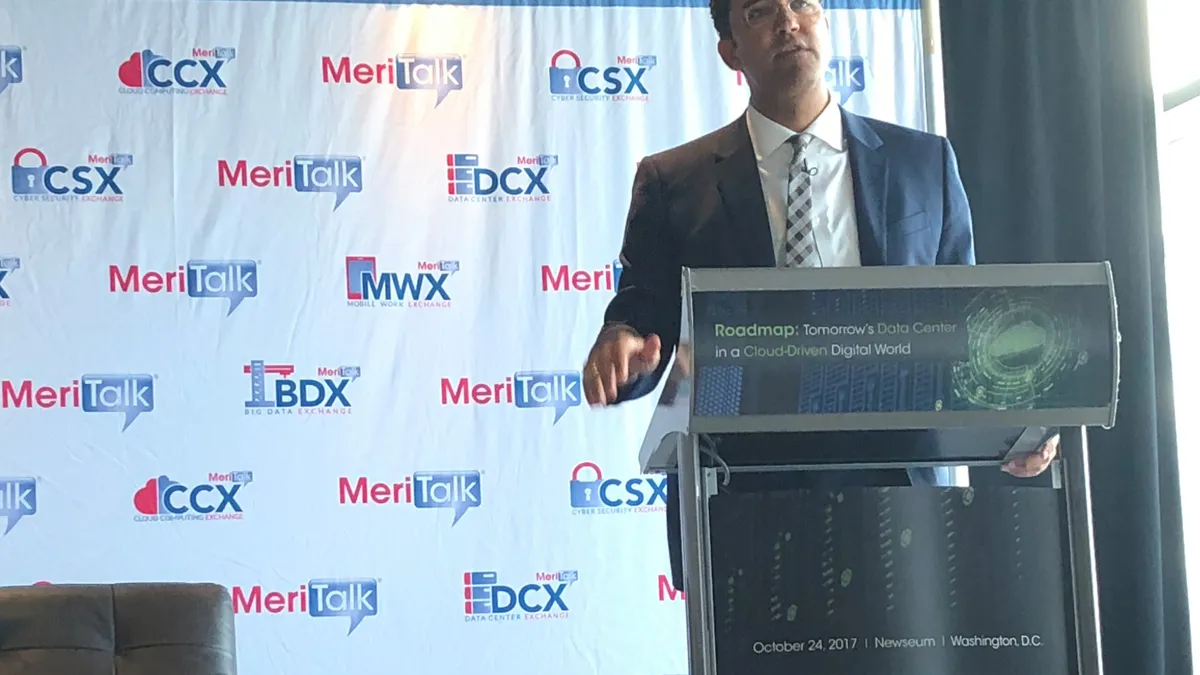Dive Brief:
- Quantum computing is the tech race the U.S. cannot afford to lose, according to Rep. Will Hurd, R-TX, speaking at a MeriTalk event in Washington D.C. last week. The technology will become the ultimate way information is protected or infiltrated.
- Hurd maintains that whomever is the first to achieve quantum computing will reign as the "digital hegemon," and this may be a potential adversary of the U.S., such as Russia or China.
- The current debate of encryption between the FBI and Apple is a "tickle fight" compared to the potential of quantum computing, but the country is not prepared, he said.
Dive Insight:
"If the federal government thinks they can defend their infrastructure by themselves, or the private sector can defend their infrastructure by themselves, it is the equivalent of the French thinking the Maginot Line is going to protect them from the Germans," Hurd said, referencing a phrase commonly used by Keith Alexander.
Hurd was unabashed by federal agencies and companies alike speaking of the cloud as an emerging tech. "The cloud has emerged," he said. "This is technology we should all be comfortable with," as it enables those in IT to explore and introduce new things to digital systems and strategies.
"Y2Q," or "years to quantum," is the next frontier federal cyber specialists should be exploring, he said. He explained the hysteria that enveloped Y2K is not dissimilar to that of quantum computing, but the difference between Y2K and Y2Q is the preparedness.
Quantum computing will grant a country access to adversaries' secrets while maintaining the impenetrability of its own, according to Hurd. The Russian and Chinese governments are currently obtaining extensive amounts of encrypted data under the pretenses that once quantum computing is obtained, they'll "be able to break it."
Innovators in the public and private sector are thirsty to deploy the still seemingly theoretical concept, but the initial fruits have already been seen in semiconductors, GPS, MRI and lasers. But adoption of quantum computing is taking so long because of a lack of standardization.
Still, both sectors cannot delay the timely demands of quantum understanding. Quantum computing currently threatens the cryptographic foundation of security, and in a few years, some experts see it annihilating its very existence.













